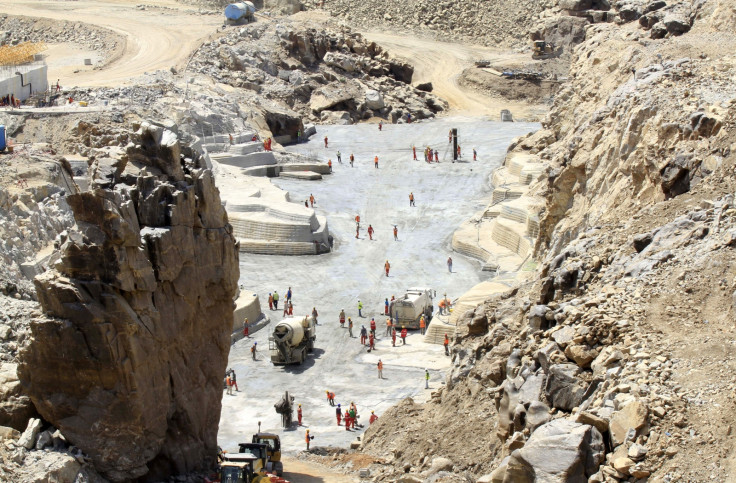Saudi visit to Grand Ethiopian Renaissance Dam sparks outrage in Egypt
Grand Ethiopian Renaissance Dam will be Africa's largest hydroelectric power plant upon completion in 2017.

Egyptian media has lambasted Saudi Arabia for sending a delegation to visit the construction site of the Grand Ethiopian Renaissance Dam (GERD), near the Blue Nile River. Saudi officials visited the site and met Ethiopia's Prime Minister Hailemariam Desalegn to discuss the construction of the dam, which will be Africa's largest hydroelectric power plant upon completion in 2017.
Egypt has opposed the project, arguing the dam would result in a reduction of water availability in the country, affecting its main source of irrigation.
Following the visit of the Saudi delegation, Egyptian journalists, professors and media personalities publicly condemned the visit, urging Saudi Arabia not to become involved in the construction project.
"Egypt is not obliged to continue to contain its reactions towards Saudi Arabia... any interference [by Saudi Arabia] in the GERD project implies a direct threat to Egypt's national security," Egyptian news commentator Mohamed Ali Khayr said on Egyptian TV, according to the Middle East Eye.
Professor of political and strategic studies Tariq Fahmi said:"We can support the Saudi princes who oppose the king... in a short time you will know that we are able to interfere in the affairs of the Gulf States and support the Saudi princes in the opposition," the Middle East Monitor reported.
Relations between Egypt and Saudi Arabia have already deteriorated as the countries support opposing sides in the ongoing war in Syria. Egypt is aligned with the Syrian government of Bashar al-Assad, while Saudi Arabia is part of a coalition that backs some of the anti-Assad rebel groups.
Egyptian officials, including President Abdel Fattah Al-Sisi, have not commented on the Saudi delegation's visit to the dam.
However, the Egyptian parliament witnessed an argument among some MPs over the Saudi visit, with one of them claiming "Saudi Arabia has to be put in its right stature," according to the Egypt Independent.
Earlier this year, Egypt's minister of foreign affairs Sameh Shoukry denied any tensions with Saudi Arabia, claiming relations with the Kingdom were strong and historic.
The construction of the dam, started in April 2011, is expected to create up to 12,000 jobs.
The entire cost of the project – $5bn (£ 4bn) – is being financed entirely by Ethiopian government bonds and private donations. Gerd is scheduled to be inaugurated in July 2017.
Ethiopia has denied the dam will result in reduction of water supplies to other countries.
Addis Ababa maintains Gerd will produce 6,000 megawatts of electricity, making Ethiopia's the powerhouse of Africa and will create additional water for the downstream countries, including Sudan and Egypt.
The impact the dam will have on the environment is yet unknown.
In September 2016, the Tripartite National Committee (TNC) of Ethiopia, Egypt and Sudan signed a contract with the French consulting company BRLi, which is conducting two studies on the environmental, social and economic impact of the dam.
© Copyright IBTimes 2025. All rights reserved.






















